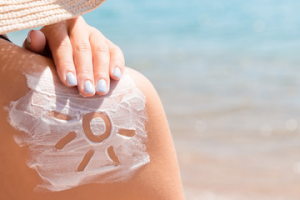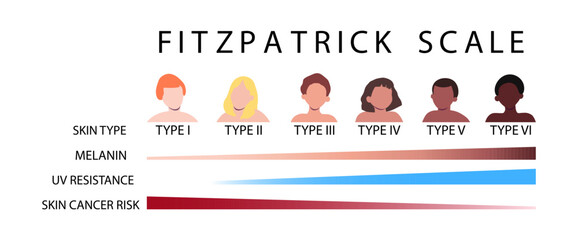By Dr Gos Gopalakrishnan
We all know that sunscreen is crucial for protecting our skin from harmful UV rays, but did you know that it’s just as important for people with darker skin? Let’s dive into the Fitzpatrick skin types and why everyone, regardless of skin tone, should wear sunscreen.

The Fitzpatrick skin type
The Fitzpatrick skin type classification system, developed by dermatologist Thomas B. Fitzpatrick in 1975, categorizes skin based on its response to UV exposure. There are six skin types:
People with darker skin (types IV to VI) often believe they’re naturally protected from the sun. While it’s true that higher melanin levels provide some protection against UV rays, it doesn’t make them immune to sun damage.

Here’s why everyone needs sunscreen:
Myth-Busting
It’s a myth that people with darker skin don’t need sunscreen. Everyone, regardless of skin tone, can benefit from daily sunscreen use. The key is to choose a broad-spectrum sunscreen with an SPF of at least 30, which protects against both UVA and UVB rays.
Applying Sunscreen Correctly
Make sure to apply sunscreen generously and evenly to all exposed skin. Don’t forget often-missed areas like the ears, neck, and tops of feet. Reapply every two hours, or more frequently if you’re swimming or sweating.
Sunscreen is essential for everyone, no matter their Fitzpatrick skin type. Protecting your skin from UV damage is crucial for preventing skin cancer, reducing hyperpigmentation, and maintaining youthful, healthy skin. So, whether you have the fairest skin or the darkest, make sunscreen a daily habit. Your skin will thank you!
Book Your Skin Check
Feel free to reach out to us at the WA Skin Cancer Centre for more information, to schedule a skin check, or if you have any questions about skin cancer prevention and treatment. Your skin’s health is worth every effort.
Book your skin check with us today!
About the Author
 Dr Gos Gopalakrishnan
Dr Gos Gopalakrishnan
BSc (Hons), MBChB, DRCOG, MRCGP, FRACGP
Dr Gos is a dedicated and dynamic medical leader and educator with a deep passion for skin cancer care. Based in Perth, he specialises in skin cancer management, ensuring comprehensive care for his patients. Alongside his clinical work, Dr Gos serves on an Expert Examiner Panel at Curtin Medical School, and is the Clinical Director of Radiant Doctors, an initiative established to provide sustainable primary care services and address the shortage of GPs in regional areas.